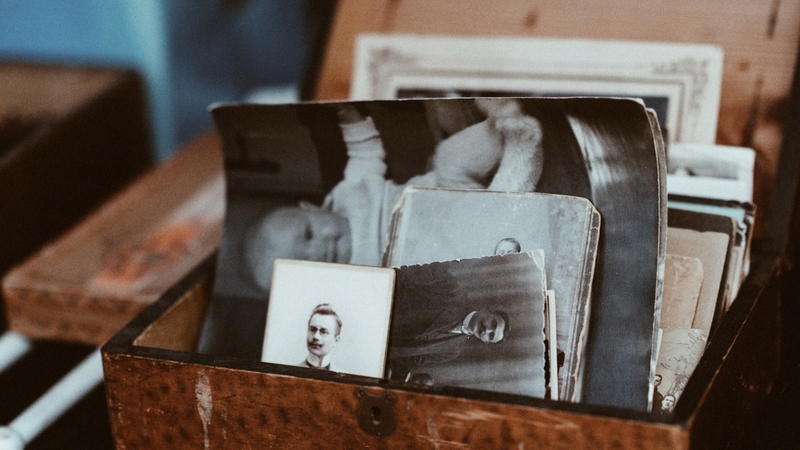Discovering Family Documents
Episode #3 of the course Researching your genealogy by Alisa Miller
Welcome to Day 3 of researching your genealogy. Yesterday, we covered talking to your family to gather information. Today, we’re going to explore how family documents can be useful for your research. When you talk with your family members, it’s important to ask for any documents any of your family may have.
Documents
Documents your family members may have could include:
• birth, marriage, divorce, and death certificates
• funeral cards
• newspaper clippings (including obituaries, weddings, engagements, or news stories)
• military documents
• photos (be sure to look on the back for handwritten information)
Often, these documents include important dates, as well as family relationships, parents’ names, and family history. If your relatives don’t want to part with these original documents, ask if you can scan them or take photos of them. Be sure to document which family member has the originals too. Any of these documents you find will provide important information to complete your family history. Being able to access these documents without digging through databases and other sources will make your search much easier.
You may also find that when your family shares these documents with you, they come with stories of how that person came to possess those documents. Write down these stories too. They provide rich details that enhance your family history.
Family Bibles
Family Bibles were an important method of documenting family history in the US. It was common to have a family register section located between the Old and New Testaments. This section came with blanks that families would complete with information about the Bible owner’s parents, as well as births, marriages, and deaths. Many families, even those without a strong religious belief, kept family Bibles. Often, parents would gift Bibles to their children, continuing the tradition to a new generation. Besides written information, such Bibles may also contain photos, newspaper clippings, and other keepsakes related to the family. If you discover any of your family members have family Bibles, you have probably found a true family treasure.
For example, when I recently learned my dad had his own family Bible, my mom told me a story about one of my dad’s older sisters. This sister had a habit of telling people she was significantly younger than she actually was. When she was middle-aged, she married a much younger man. As she got older, she was diagnosed with dementia, and the husband needed proof of my aunt’s age. My dad’s family Bible provided proof of my aunt’s true age. Not only was her husband surprised to learn how much older she was than he, somehow she had kept that secret throughout their marriage.
So, the discovery of my dad’s family Bible not only gave me plenty of names and dates, it also came with an interesting story. Hopefully, your discovery of family documents and Bibles will provide you with plenty of details that make your family history come alive.
Tomorrow, we will take a look at some of the online genealogy services. These services usually provide both free and paid options. In the next couple of lessons, we’ll examine how you can select which services might be useful for you and how to get the most out of their free options.
Recommended book
Organize Your Genealogy: Strategies and Solutions for Every Researcher by Drew Smith
Share with friends

